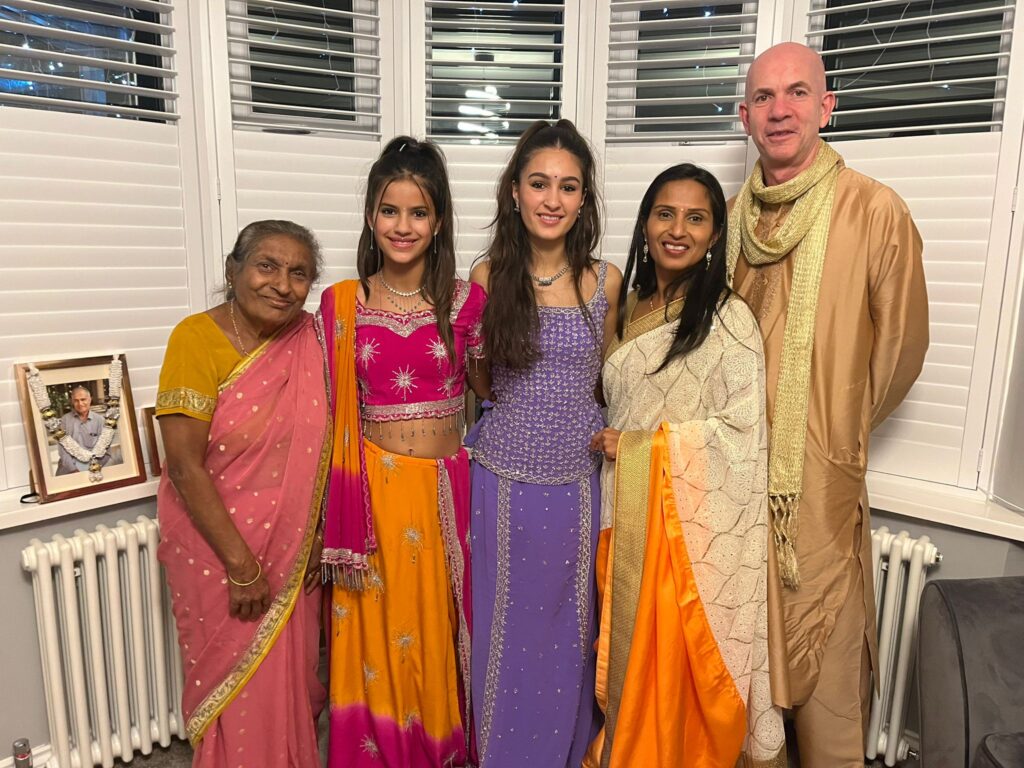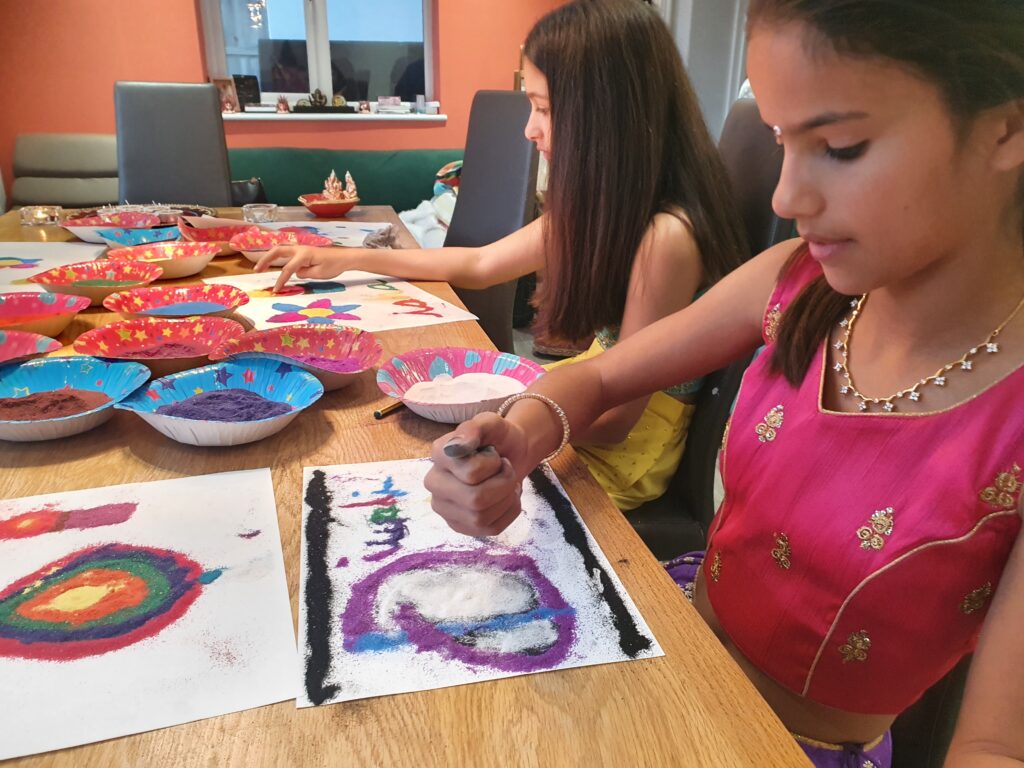Diwali, Justice and Community
Magistrate Swati shares a personal reflection on how Diwali brings light, connection, and cultural pride - both at home and in the courtroom. From family traditions to the role of a magistrate, she explains how celebration, justice, and representation can all help build a stronger, more inclusive society.
Diwali and personal reflections
For me, Diwali is a chance to reflect on the culture and the traditions my parents grew up with. It’s a time to get together, dress up in beautiful Indian clothes, stunning jewellery, and celebrate.
As a second-generation Indian, I grew up watching my parents work incredibly hard, often missing out on celebrating Diwali. When my children were born, especially being mixed race, I felt more strongly about reviving those traditions so they could connect with and embrace their heritage.
My parents always lit diyas (small candles) for the five days of Diwali, and I have continued that tradition. Over time, my husband and I have started hosting Diwali parties. We invite friends from all backgrounds, making Diwali a special celebration that brings us all together. We make rangoli (traditional Indian floor art), decorate the house, serve food, play games, exchange gifts, and enjoy fireworks and sparklers – it’s a joyful gathering centred around light. The diyas are at the centre of it, symbolising goodness and light coming into the home.


For me, it’s another opportunity to create memories, blend cultures, and show my children, that all heritages are equally important. I’m Indian, my husband’s English. He dresses up for Diwali, I dress up for Christmas, and our children are lucky enough to celebrate it all.
Diwali and the role of magistrates
Diwali is about light overcoming darkness and the belief that good can prevail. For me, it’s also about generosity, kindness, and the small but powerful acts that can help lift people out of dark places. That perspective carries into my role as a magistrate.
The magistracy is not simply about punishment, it is about fairness, balance, and justice. Justice offers victims a sense that there is light at the end of the tunnel, that when something bad has happened to them, their story will be heard. At the same time, it gives defendants the chance to be heard too, to put forward their side of the story. And when guilt is established, it’s not just about the sentence but about showing them a way forward. It’s about giving them the chance to take responsibility, to learn, and to find a different path.
Often, people find themselves before the court not because they are inherently “bad,” but because of circumstances: hardship, poor choices, or influences that led them astray. Sometimes, people just need help understanding the law, recognising the impact of their behaviour, or being given the opportunity to move on and rebuild. That’s where justice can act as a form of light: guiding people towards something better, safer, and more respectful of others.
Like Diwali brings light into homes, the magistracy brings fairness, clarity, and hope into people’s lives. It’s about helping victims feel heard, treating defendants with dignity, and making our communities safer and stronger.
Community and representation
Diversity in the magistracy is essential. Diverse voices come from all walks of life: different genders, ages, races, backgrounds, and professions. When we bring all these perspectives to the bench, it has a big impact.
For victims and defendants, seeing someone on the bench who looks like them, who shares a cultural reference point, or who might understand their lived experiences, can make the process feel more human and relatable. It’s very different from facing a bench that feels completely removed from your world. People may feel more comfortable opening up, sharing their challenges, and explaining their frustrations when they know there’s someone who “gets it.”
Diversity matters just as much in discussions. Each magistrate brings a different lens, giving conversations more balance and depth, which ultimately leads to fairer justice. It’s about perspective, empathy, and making sure no voice is left unheard.
For anyone thinking about becoming a magistrate, my message is simple: do it. The sense of satisfaction, contentment, and peace you get from serving is unparalleled. You are making your community stronger, and you are helping people who really need it. I often think about my parents, who came to this country with nothing, worked incredibly hard, and built a future for us. They always wanted me to be part of this community. My father would be so proud that I’m giving back in this way, and that means everything to me.
It also sends a powerful message: this is your community and you have every right to shape it. Being a magistrate shows that giving something back doesn’t require giving up your life – it’s at least 13 days a year, plus training, and a minimum five year commitment. But in that time, you gain so much: a better understanding of the community we live in, the challenges people face, and the difference fairness and compassion can make.
Without the magistracy, our justice system simply wouldn’t work in the same way. With it, and with diverse voices at its heart, we make sure justice is not only fair, but also representative of the society we live in.
Become a magistrate
More magistrates are needed in criminal and family courts to deliver justice effectively and ensure there is diverse representation of the communities they serve.
